The Centre of the Universe and a Congressional Farm Tour
For one day, last week, Centre County, Pennsylvania was the center of my universe—and it lived up to all expectations. Like so many things, this day was supposed to happen in 2020, but COVID happened instead.
Congressman Glenn "GT" Thompson (R-PA) joined several Choose Clean Water Coalition members, representatives from the Centre County Conservation District, USDA's Natural Resources Conservation Service, Woods and Water Consulting, and the National Fish and Wildlife Foundation for a tour of agricultural conservation practices on farms in Centre County.
One thing to know about Congressman Thompson, which becomes apparent very quickly, is that Centre County is his home turf. He knows the region and the people and as we quickly learned, virtually everyone there knows him. And most people know him as "GT" rather than as Congressman Thompson. This was not the first time we had taken the Congressman on a tour of projects like this, but we hadn't done it since 2015.
Congressman Glenn “GT” Thompson (R-PA) touring Weaver Family Farm in Centre County, PA. Photo by Alex Kozak, Theodore Roosevelt Conservation Partnership.
He is the Ranking Member on the House Agriculture Committee and he knows agriculture, and is especially aware of the challenges and concerns that face small farms and farmers that predominate in Pennsylvania. He is also a strong proponent of getting sensible conservation practices on farms and protecting water quality in local streams and adjacent wildlife habitat.
Centre County, PA, is a long way from Chesapeake Bay. Some might wonder what the connection is between the Bay and this rural county, but Congressman Thompson is not one of them. He understands the connections and that pollution entering a local stream in Centre County eventually flows into the Juniata River or West Branch of the Susquehanna, and eventually to the Bay. Cleaning up local waters also helps areas downstream, and conservation practices on the farms we saw last week go a long way toward protecting and restoring local streams and the Chesapeake Bay.
We had representatives from five Coalition organizations—PennFuture, Theodore Roosevelt Conservation Partnership, Ducks Unlimited, ClearWater Conservancy, and the Chesapeake Conservancy. The latter two organizations led much of the tour, as both organizations helped implement the projects we visited through funding from an EPA Chesapeake Bay Small Watershed grant, which is administered by the National Fish and Wildlife Foundation. One thing that was clear from the day—these on-the-ground experts were very skilled at working with willing farmers who wanted to implement various conservation practices on their land, but lacked the expertise and funding to do it on their own.
Congressman Thompson is a longtime supporter of Congressional funding for voluntary conservation work throughout the six-state Chesapeake Bay watershed, including for the Congressionally-designated funding for the EPA Chesapeake Bay Small Watershed Grant Program.
Congressman Thompson wanted to see practical applications of this funding on farms in Centre County and to learn more about other needs on local farms. He came with one staff person and was with us for more than half a day.
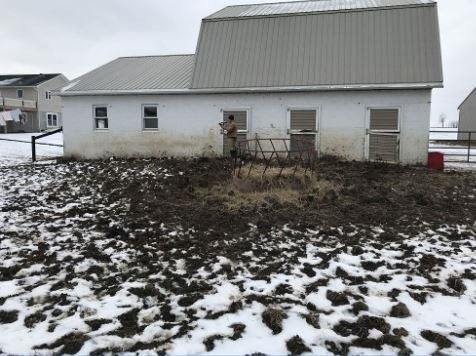
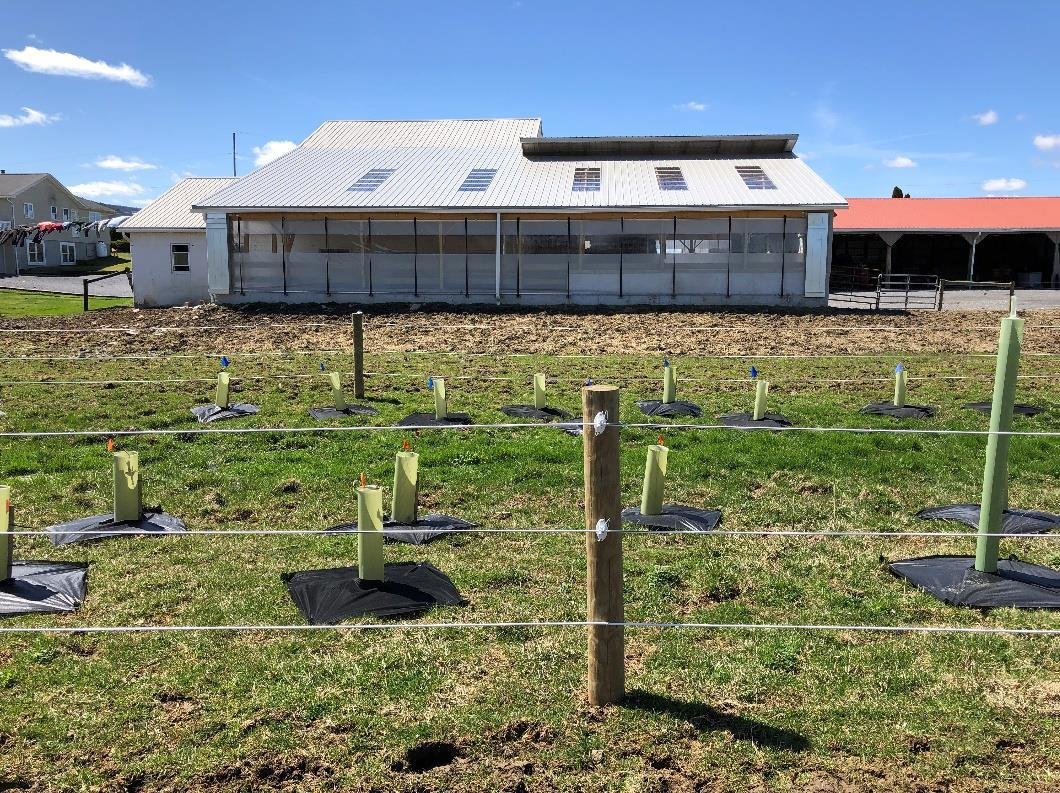
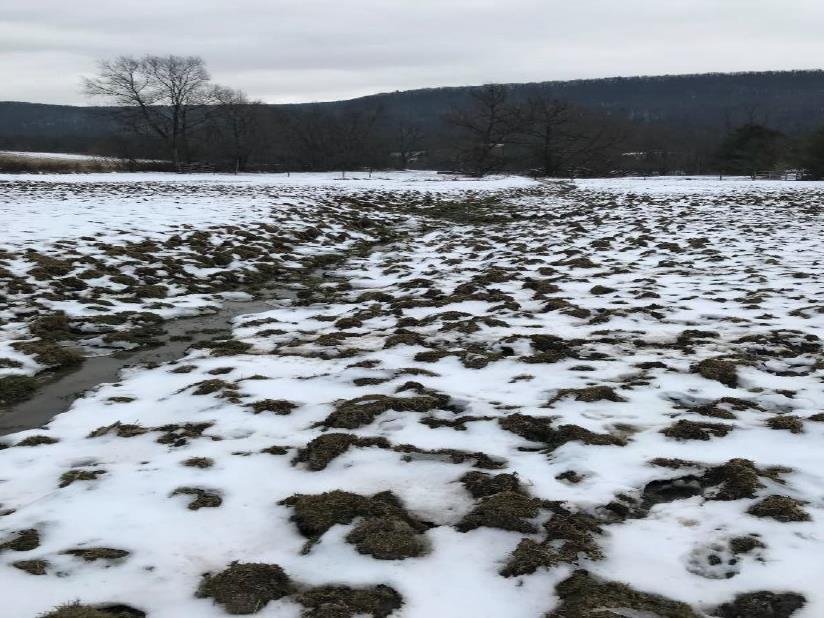
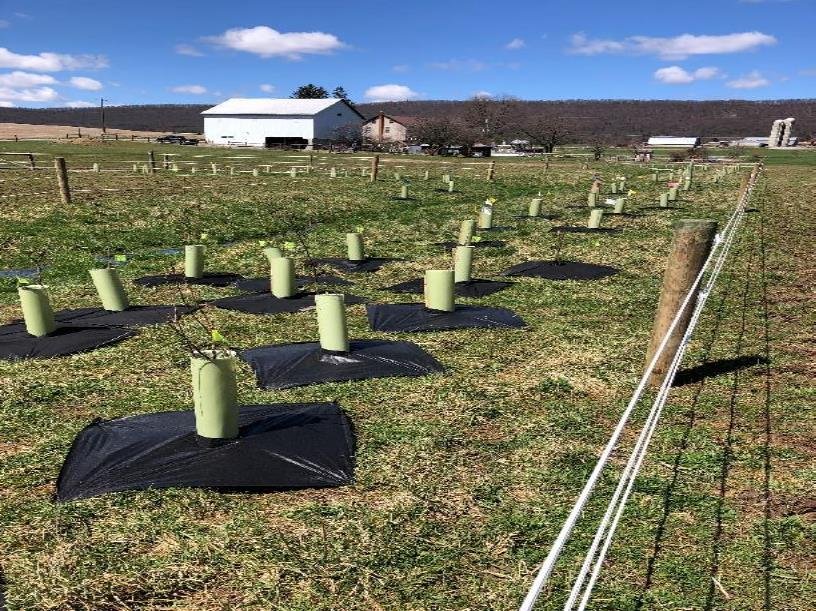
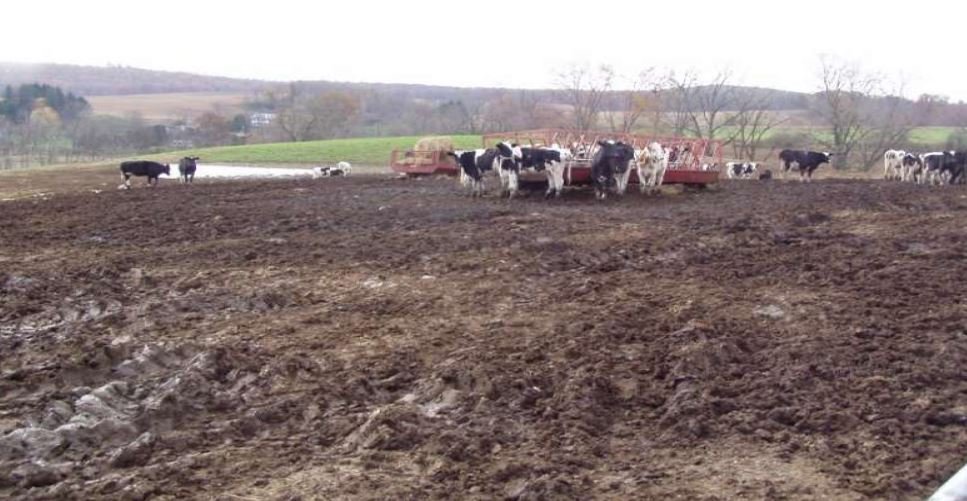
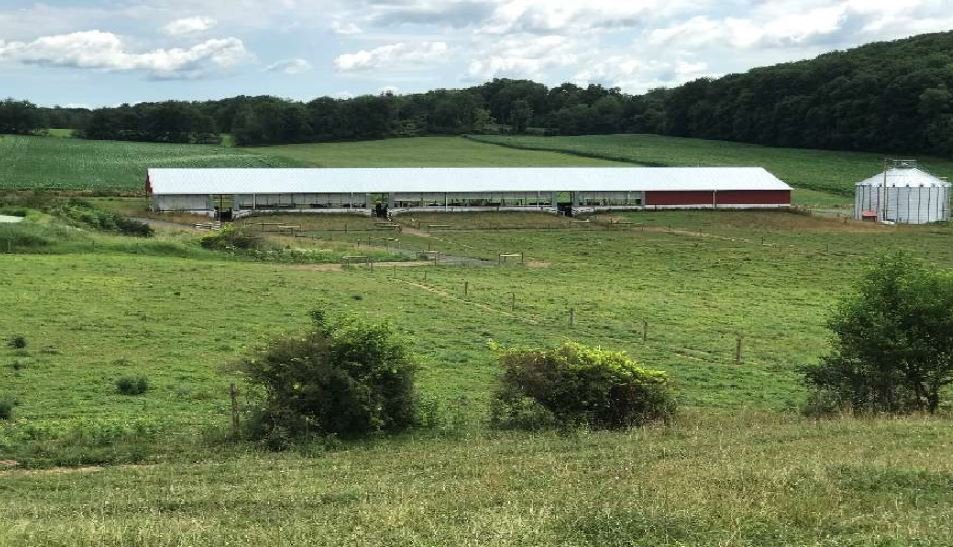
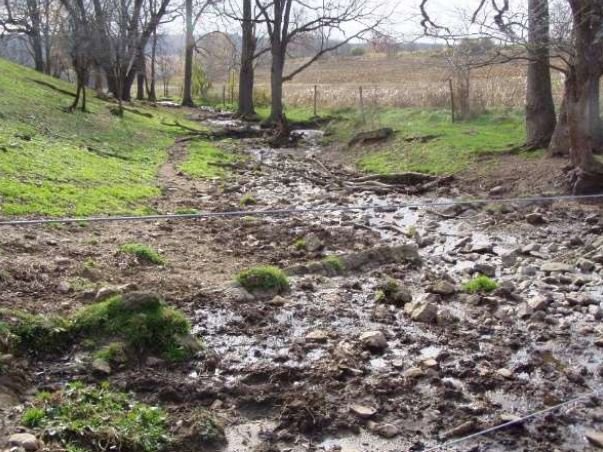
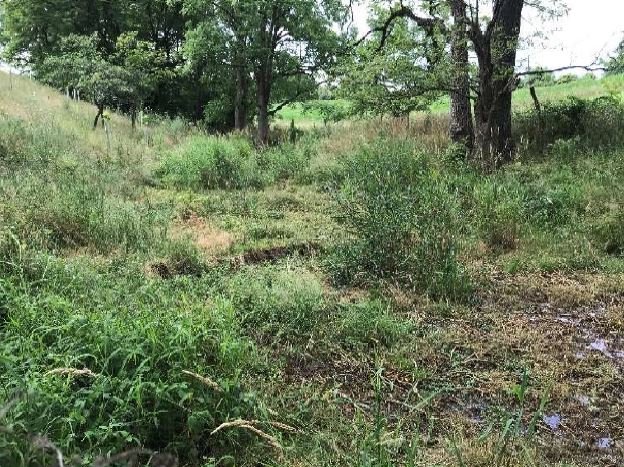
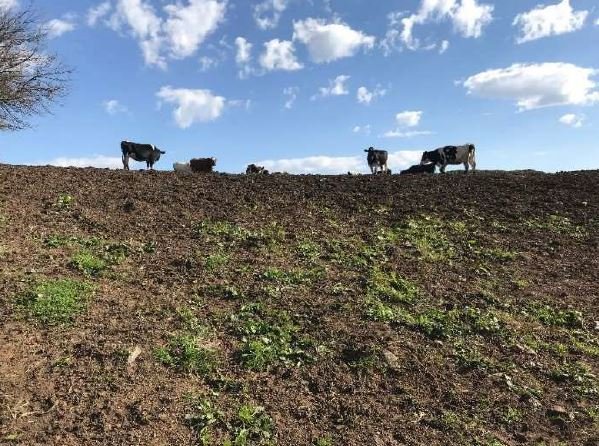
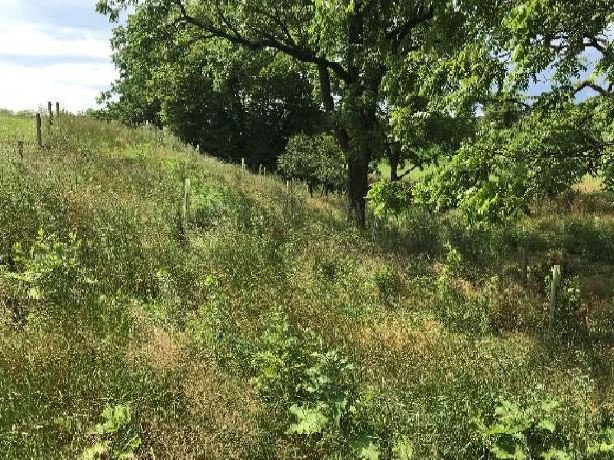
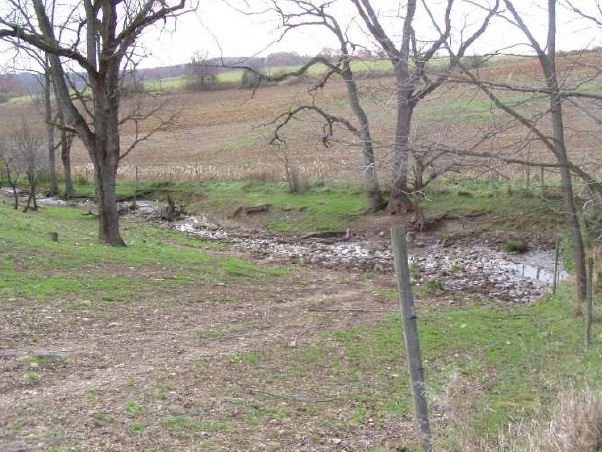
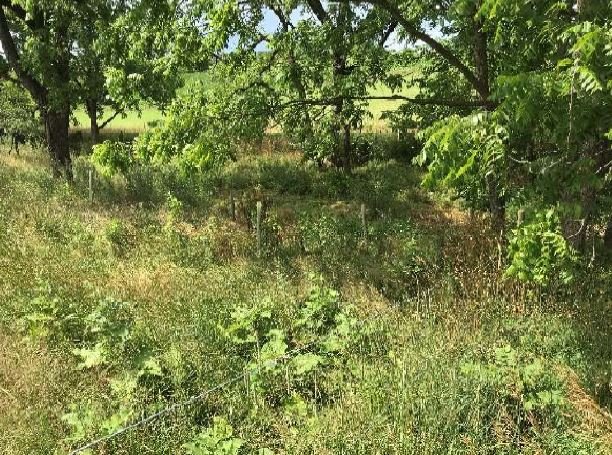
We toured three different farms and then ended the day with a great lunch at the Way Fruit Farm in Port Matilda. We started with a small farm in Rebersburg, where prior to the Small Watershed Grant funding project, the farmer had no shelter for their animals in the barnyard and no manure storage or any runoff controls on other structures. We toured the livestock shelter, as well as the streambank fencing which kept their animals out of the small stream on the property that drained into Elk Creek. The shelter also includes dedicated space for manure storage and other best management practices to keep pollution out of local waterways. Already, there are early indications that the water quality downstream in Elk Creek was improving.
We met with the landowners on one farm, the Weaver Family Farm, and it was no surprise to anyone who knows Congressman Thompson, that he knew the entire family and had gone to school with one of them. But he also heard straight from the landowners as to how grateful they were for getting not only some extra funding, but more importantly the technical assistance necessary to implement the projects, including relocating their dairy barn to get their herd away from a muddy wet field and a small stream that flowed into Halfmoon Creek. The local stream health improved, which surprised no one, but the landowners were elated when their herd health and milk quality improved dramatically.
We visited the Meyer Dairy Farm in State College, which was founded in 1887, making it the oldest continuously operated retail dairy farm in Centre County. The 437-acre farm also included a large 20-acre riparian buffer planted and maintained by the experts at ClearWater Conservancy. The buffer is now protecting the headwaters of Slab Cabin Run on the outskirts of State College.
Working to get clean water is both a non-partisan and a partnership endeavor. Last week we saw a snapshot of the best of all worlds—hard-working landowners going the extra mile to improve their land and water, and their neighbor's, and professionals assisting them in getting the job done. These projects are just one tiny piece of the puzzle that we must put together to improve local streams and the Chesapeake. But after seeing all this progress, it was a good day at the Centre of my universe.
Header photo courtesy Ducks Unlimited

